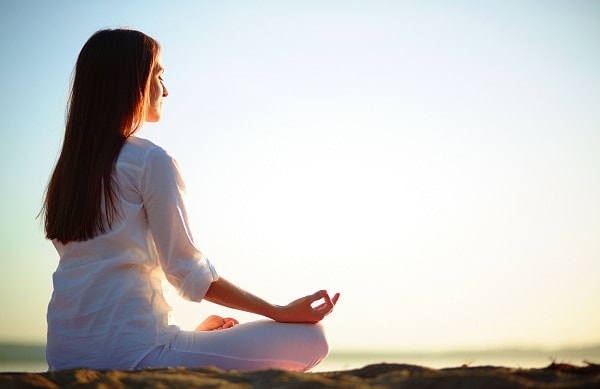Tips for good sleep
Sleep is key to doing well in exams as it helps improve memory and concentration. Therefore, to achieve the best results, candidates should try to get 8 hours of sleep.
Sleep is key to doing well in exams as it improves memory and concentration. Therefore, to achieve the best results, candidates should try to get 8 hours of sleep. But what if they can’t sleep because of anxiety and nervousness? Candidates should try a reasonable diet combined with some easy “tricks” to relieve stress and fall into a deep sleep.
How to eat and drink
Timing: It is best to eat your last meal at least two hours before going to bed. Avoid spicy, greasy foods as they are difficult to digest and can make it difficult to fall asleep. These foods can also wake you up in the middle of the night with heartburn and disrupt your plans for a good night's rest. If you feel hungry, you can have a snack as it is known that it is difficult to fall asleep on an empty stomach.
Recommended foods: Candidates should eat foods that can help them sleep well, such as lettuce, which contains lactucarium, which has calming and sedative properties. Almonds and walnuts contain the amino acid tryptophan, which increases the production of serotonin and melatonin, which helps them sleep well. Bananas are high in potassium and magnesium, which help relax muscles and promote sleep. Whole grains contain B6 (also found in fish such as tuna and salmon), which helps produce melatonin to promote sleep. Candidates should also avoid refined breads or pasta, sugary cereals, or fried foods.
 |
Drinks: Skimmed milk is recommended as it contains tryptophan and calcium which triggers the production and replenishment of melatonin. Chamomile tea contains glycine, an amino acid that acts as a mild sedative. You can mix it with honey, which contains tryptophan, which will also help you sleep. Fruit tea contains alkaloids that help calm the nervous system and have been shown to be good for sleep.
Avoid: Candidates should not drink caffeine in the afternoon because caffeine remains in the body for 6-14 hours. Therefore, avoid caffeine at least eight hours before bedtime. If you need caffeine to stay awake during this time, drink very low-caffeine drinks such as green tea or low-caffeine chocolates such as orange soda.
Beware of sleeping pills: If you usually suffer from insomnia and are already taking sleeping pills, it may not be a big deal. But if you have never used them before, the night before an exam is not the best time to try them. Antihistamines are the active ingredients in most over-the-counter sleeping pills, and they can make you feel drowsy long after you wake up, which can have a big impact on your test performance.
Dealing with anxiety
If you can't sleep because of stress or anxiety, don't go back to studying. It's important to let your mind rest, even if you don't sleep. Try the relaxation techniques below first. If you still can't sleep, read a book or do some other relaxing activity.
Write down your anxious thoughts: A good way to deal with worries that you can’t get out of your head is to write them down on paper or in a notebook. Writing them down means you don’t have to focus on remembering them, but instead let your mind relax.
“Put your thoughts in a drawer”: Napoleon was famous for being able to fall asleep almost instantly under any circumstances. His technique was to “take” any disturbing thoughts and imagine putting them in a filing cabinet and locking it. You can also try this method by lying down, closing your eyes and trying to clear your mind. When your thoughts turn to worries, imagine putting them in a drawer and locking it. This will help you relax and fall asleep.
Recall the positive events of the day: Worrying about what needs to be done often keeps people awake. So, instead of focusing on what hasn’t been done or what hasn’t happened yet, focus on what has been accomplished to calm your mind. Lie still, relax, and recall the activities of the day in no particular order, but remember as many details as possible. For example: I woke up. I lay in bed. I rolled out of bed. I took a shower. I put toothpaste on my toothbrush… The goal is not to train your memory, but to help you get your thoughts organized and relaxed.
Use images to calm your mind: The Greeks have long used mental imagery to induce sleep. To help you sleep, conjure up an image of a place that feels calm and soothing, like a tropical beach or a fern forest, or imagine an arched fence that protects you from your thoughts and worries, or a river of sleep that relaxes and lulls you to sleep…
Herbal Remedies: Certain herbs can help you deal with anxiety and fall asleep. You can often find these herbs in teas, liquids, or capsules at health food stores. Herbs that have been shown to be effective in combating anxiety and helping you sleep include valerian root and passionflower. Although these herbs are herbs, they can interact with sedatives and other medications, so consult your doctor before using them.
Apply relaxation techniques
Take a warm bath or shower: Warm water will relax you, while bath time will also give you a chance to rest and relax before bed.
Movement to relax your eyes: Roll your eyes in wide circles, four times in each direction, or until you feel relaxed. This helps your eyes stay still and stimulates melatonin production. You can do this movement alone or in combination with stimulating some of the following sleep points:
Location behind the ear: There is a depression right behind the ear, use your index and middle fingers to apply moderate pressure for about 20 minutes or until you are ready to sleep.
On the feet: Place two fingers on both feet at the space between the big toe and the second toe, move the two fingers up to the middle of the instep and press deeply, holding for 4-5 seconds can help reduce insomnia.
Calf: Place four fingers horizontally on the inside of your lower leg just above the ankle bone. Use your fingers to apply firm, deep pressure just behind the shin bone (tibia) for 4-5 seconds.
Use aromatherapy: Using some essential oils in the room or a few drops on your pillow can help you sleep. Lavender is the most popular essential oil for relaxation and has been shown in clinical studies to help people fall asleep. Other aromatherapy oils to try include chamomile oil which can reduce anxiety, rose oil which can help reduce stress and can make you feel more positive.
Yoga breathing techniques for relaxation: Controlled breathing is key to yoga practice and aids relaxation by stimulating the parasympathetic nervous system, which controls the automatic systems that help people rest.
 |
| Yoga can help you relax. |
Nose breathing: Sit cross-legged or lie on your bed. Place your right ring finger and thumb on the sides of your nostrils, touching but not pressing. After a few deep breaths to prepare, close your right nostril and inhale deeply through your left nostril for a count of 4. When you finish inhaling, close both nostrils. Count to 4 again, then open your right nostril and exhale. Repeat the cycle until you feel relaxed and ready to sleep.
Deep Throat Breathing: Inhale for a count of 1-4, hold for a count of 1-4, and exhale for a count of 1-4. Focus on relaxing, especially during the breath hold. Continue to inhale for a count of 1-6, hold for a count of 1-6, and exhale for a count of 1-6. Continue for 2 counts until you reach maximum capacity, then start counting down 2 times until you reach 4, at which point you should be relaxed and ready to sleep.
Close your eyes and relax: Take a deep breath in through your nose, then gently exhale through your mouth. Focus on the vibrations in your chest. Do this for 6 breaths and lie still. Repeat if you are still restless.
Prepare effectively for exam day
Establish a good sleep routine: Students studying for exams often have chaotic schedules. This is especially bad the night before an exam. One of the best ways to ensure that you fall asleep easily is to go to bed and wake up at the same time each day. Establishing an early schedule can really help you stay alert and perform well in your exams.
Don't study in bed: Study at your desk or in the library, not in bed. Beds are designated for sleeping, so if you get into the habit of studying in bed, it will be harder for you to fall asleep there.
Study at the right time. Try to do your best studying between 6pm and 8pm, when your mind is fresh and when you are less likely to need stimulants like strong coffee or tea.
Create a suitable environment: You should not go straight from your desk to bed, but take the time to prepare your bedroom to be cool, quiet and as dark as possible to help your body produce melatonin to help you sleep well.
Go to bed early and wake up early: Instead of studying extra hours at night, try going to bed and waking up early to study. So, instead of staying up until midnight, students should go to bed at 11pm and wake up at 7am the next morning to help refresh their mind and study more effectively.
According to SK&DS
| RELATED NEWS |
|---|


